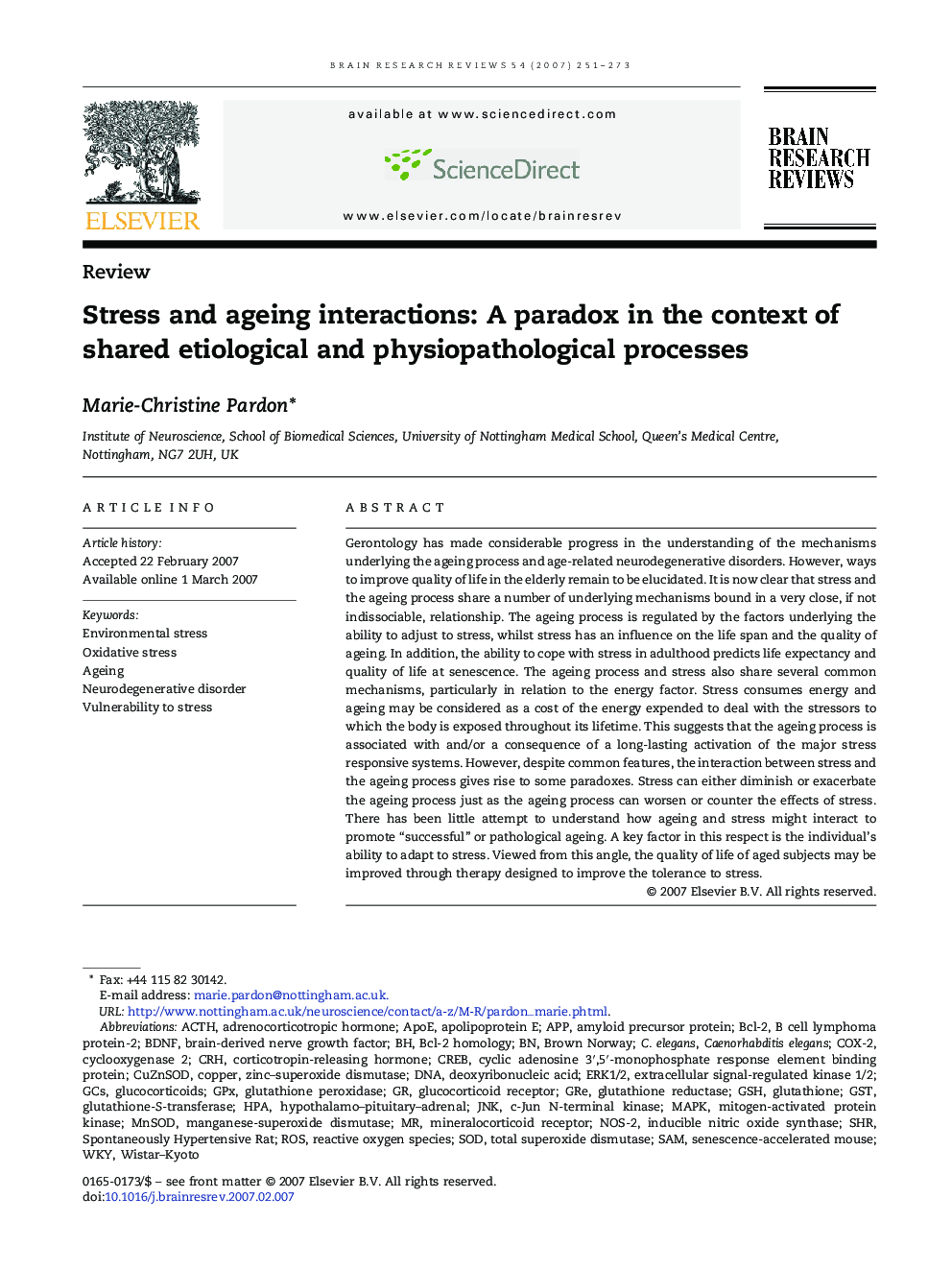| Article ID | Journal | Published Year | Pages | File Type |
|---|---|---|---|---|
| 4334078 | Brain Research Reviews | 2007 | 23 Pages |
Gerontology has made considerable progress in the understanding of the mechanisms underlying the ageing process and age-related neurodegenerative disorders. However, ways to improve quality of life in the elderly remain to be elucidated. It is now clear that stress and the ageing process share a number of underlying mechanisms bound in a very close, if not indissociable, relationship. The ageing process is regulated by the factors underlying the ability to adjust to stress, whilst stress has an influence on the life span and the quality of ageing. In addition, the ability to cope with stress in adulthood predicts life expectancy and quality of life at senescence. The ageing process and stress also share several common mechanisms, particularly in relation to the energy factor. Stress consumes energy and ageing may be considered as a cost of the energy expended to deal with the stressors to which the body is exposed throughout its lifetime. This suggests that the ageing process is associated with and/or a consequence of a long-lasting activation of the major stress responsive systems. However, despite common features, the interaction between stress and the ageing process gives rise to some paradoxes. Stress can either diminish or exacerbate the ageing process just as the ageing process can worsen or counter the effects of stress. There has been little attempt to understand how ageing and stress might interact to promote “successful” or pathological ageing. A key factor in this respect is the individual's ability to adapt to stress. Viewed from this angle, the quality of life of aged subjects may be improved through therapy designed to improve the tolerance to stress.
